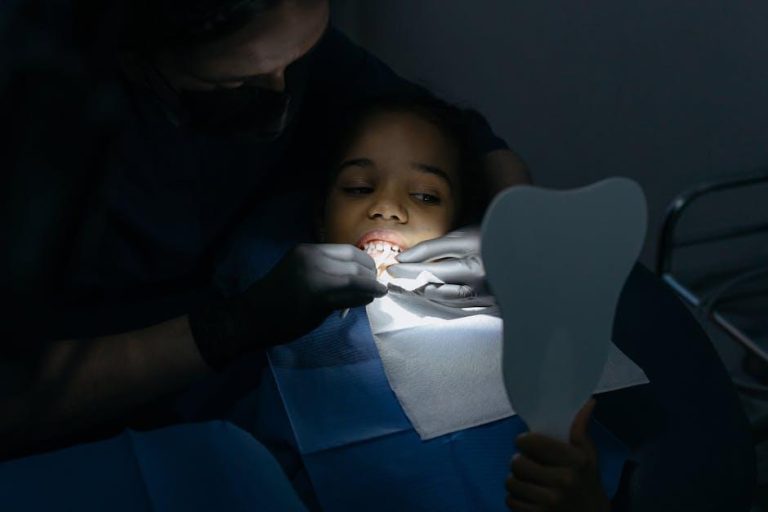
Dentist Explains How Oral Health Affects Both Expecting Mother and Fetus: From Gingivitis to Low Birth Weight
Pregnancy is a beautiful journey filled with excitement and anticipation. However, it also brings unique health challenges, including those related to oral health. Recent insights from dental professionals reveal how oral hygiene during pregnancy affects not just the mother but also the developing fetus. From managing pregnancy-induced gingivitis to preventing risks like low birth weight, understanding this vital connection helps ensure better maternal and fetal outcomes.
Why Oral Health Matters During Pregnancy
Many expecting mothers overlook the importance of dental care during pregnancy, mistakenly thinking it’s not a priority. Yet, changes in hormone levels can aggravate gum health and increase susceptibility to infections. Poor oral hygiene and untreated gum disease may contribute to broader pregnancy complications.
Key Hormonal Changes That Impact Oral Health
- Increased Progesterone and Estrogen: These hormones boost blood flow to gum tissue, making gums more sensitive and prone to swelling and bleeding.
- Altered Immune Response: Pregnancy modifies immune responses, which can increase vulnerability to oral infections like gingivitis.
Understanding Gingivitis and Its Impact on Pregnancy
Gingivitis is a mild but common form of gum disease characterized by inflamed, red, and bleeding gums. During pregnancy, it can escalate to a condition called pregnancy gingivitis, affecting nearly 60-75% of pregnant women. If untreated, gingivitis may progress to periodontitis, leading to more serious complications.
How Gingivitis Affects the Fetus
Dental experts emphasize the link between maternal gingivitis and adverse pregnancy outcomes. The bacteria and inflammatory markers from oral infections can enter the bloodstream, potentially triggering:
- Preterm birth (delivery before 37 weeks)
- Low birth weight (babies weighing less than 2,500 grams)
- Gestational diabetes and preeclampsia complications
Scientific Evidence on Oral Health and Low Birth Weight
Multiple studies confirm the relationship between poor periodontal health and increased risk of low birth weight (LBW). According to research published in various dental and medical journals, inflammation from gum disease produces prostaglandins and cytokines that can induce uterine contractions prematurely.
| Factor | Effect on Pregnancy | Preventive Action |
|---|---|---|
| Pregnancy Gingivitis | Swollen gums, bleeding, increased infection risk | Regular dental checkups, gum-friendly cleaning |
| Periodontal Infection | Increased inflammatory markers affecting fetus | Treatment with safe antibiotics and scaling |
| Poor Oral Hygiene | Greater chances of preterm birth & low birth weight | Daily flossing, brushing, mouthwash use |
Benefits of Maintaining Good Oral Health During Pregnancy
By prioritizing dental care and oral hygiene during pregnancy, mothers can:
- Reduce the risk of gingivitis and periodontitis flare-ups
- Lower chances of bacterial infections spreading to the fetus
- Improve overall pregnancy outcomes including normal birth weight and full-term delivery
- Promote healthy eating by minimizing oral pain and discomfort
Practical Oral Care Tips for Expecting Mothers
Here are some easy and effective ways for pregnant women to maintain optimal oral health:
- Regular dental visits: Schedule a dental checkup early in pregnancy and continue with cleanings every trimester if possible.
- Gentle brushing: Use a soft-bristled toothbrush and fluoride toothpaste twice daily to avoid gum irritation.
- Floss daily: Removes plaque buildup where toothbrushes can’t reach.
- Balanced diet: Avoid sugary snacks to reduce cavity risk and maintain nutrient intake for gum health.
- Stay hydrated: Drinking water helps cleanse the mouth and reduces acid buildup.
- Inform your dentist: Always update your dental team about your pregnancy to tailor safe treatments.
Case Study: Successful Pregnancy with Managed Oral Health
Mrs. Sharma, a 29-year-old expecting mother, experienced significant gum inflammation during her first trimester. After consulting her dentist and following a tailored oral care plan including professional cleaning and daily oral hygiene, she successfully reduced gingivitis symptoms. Her baby was born full-term with a healthy weight. Mrs. Sharma credits proactive dental care for her smooth pregnancy journey.
Firsthand Experiences: What Dentists Recommend
Dr. Anjali Verma, a leading dentist featured in Hindustan Times Health, shares, “Pregnancy is not a time to avoid dental visits but rather an opportunity to enhance oral health for the wellbeing of both mother and child. Addressing gum inflammation early prevents severe complications down the line.”
She encourages expecting mothers to embrace oral care as a vital part of prenatal health regimes.
Conclusion: Prioritizing Oral Health for Maternal and Fetal Wellbeing
Oral health is inseparably linked to pregnancy health, affecting outcomes from gingivitis to risks of low birth weight. Awareness and preventive dental measures can safeguard mothers and their babies against avoidable complications. For every expectant mother, integrating dental hygiene and regular checkups is a small investment that yields far-reaching health dividends.
Remember, a healthy smile for you means a healthier start for your little one!


